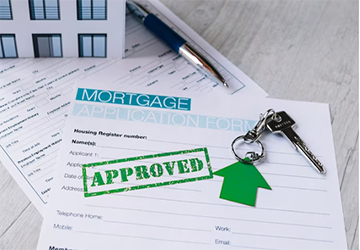How to Finance Your Home Purchase: Essential Financial Planning
Author: atika
Buying a home is a big deal. It's like leveling up in the game of life, unlocking a new chapter filled with cozy memories and a place to call your own. But before you embark on this exciting house-hunting journey, you need more than just a vision of your dream home – you need a solid game plan for financing it.
The world of mortgages and real estate can seem like a maze of jargon and complicated numbers, but fear not. This guide will break it down for you in simple, easy-to-understand terms. So, let's get started on your path to home sweet home!
Know Your Budget
Before diving into the house-hunting world, you need to establish your budget. This means looking closely at your finances and figuring out how much you can comfortably spend on a home without straining your monthly budget.
Consider your monthly income, existing debts, and regular expenses. Online budget calculators can help but remember to factor in future expenses like property taxes and maintenance costs.

Down Payment
The down payment is your initial investment in your new home. While 20% is often recommended, there are options for smaller down payments. However, a smaller down payment typically means higher monthly mortgage payments and possibly private mortgage insurance (PMI). Saving up for a more significant down payment can save you money in the long run.
Credit Score Matters
Your credit score is a critical factor in securing a good mortgage deal. Lenders use it to assess your creditworthiness. So, be diligent about paying bills on time and managing your credit card balances wisely. You can check your credit score for free online and track your progress. A higher score can lead to lower interest rates, saving you thousands over your mortgage life.
Shop for the Right Mortgage
Choosing the right mortgage is like finding the perfect pair of shoes – it should fit comfortably with your financial situation. Here are some common mortgage types:
· Fixed-Rate Mortgage: With this type, your interest rate stays the same for the entire loan term, providing stability in your monthly payments.
· Adjustable-Rate Mortgage (ARM): This type typically offers lower initial interest rates but can change over time, so it's riskier.
· FHA Loans: These are backed by the Federal Housing Administration and often have lower credit scores and down payment requirements.
· VA Loans: VA loans offer attractive terms with no down payment required if you're a veteran or active-duty service member.
Research and compare these options to determine which aligns best with your financial goals and risk tolerance.
Mortgage Pre-Approval
Getting pre-approved for a mortgage is like getting a golden ticket to the housing market. It shows sellers you're serious and financially capable of buying their home. To get pre-approved, a lender will examine your financial documents, including income, debts, and credit history. This approval can also help you move quickly when you find the perfect home.
Save for Closing Costs
Closing costs are the fees associated with finalizing your home purchase. They typically include appraisal fees, inspection fees, title insurance, and more. These costs can add up to 2-5% of the home's purchase price. Set aside money specifically for closing costs so you know when to seal the deal.
Emergency Fund
Life throws curveballs, and you want to be prepared. Create or bolster your emergency fund before buying a home. Having a safety net for unexpected expenses like a leaky roof or a broken furnace can prevent you from dipping into your savings or going into debt.
Get Multiple Quotes
Don't settle for the first mortgage offer that comes your way. As you shop for the best deals on groceries or electronics, do the same when seeking a mortgage. Get quotes from different lenders, compare interest rates, and look at the fine print for hidden fees. This simple step can save you thousands of dollars.

Understand the Fine Print
Mortgage documents can be dense and intimidating, but reading and understanding them is crucial. Feel free to ask your lender to explain anything that seems unclear. Be aware of terms like "points" (upfront fees to lower your interest rate) and "prepayment penalties" (fees for paying off your mortgage early), as they can impact the overall cost of your loan.
Avoid Big Purchases Before Closing
Hold off on major expenses like buying a new car or splurging on expensive furniture until after you've closed on your new home. Large purchases can alter your debt-to-income ratio, affecting your mortgage approval or interest rate.
Stick to Your Plan
Stick to your financial plan once you've established your budget and selected the right mortgage. The temptation may arise to stretch your budget for a bigger or fancier home, but staying within your means is crucial. Overextending yourself financially can lead to stress down the road.
Consider Extra Costs
Remember that owning a home comes with ongoing expenses beyond the mortgage. Property taxes, homeowners insurance, maintenance, and repairs are part of the package. Ensure your budget accounts for these additional costs to prepare you for all aspects of homeownership.
Paying Extra on Your Mortgage
If your finances allow, consider making extra payments toward your mortgage principal. Even small additional expenses can significantly reduce the interest you pay over the life of the loan and help you build home equity faster.
Be Patient
The home-buying process can be both thrilling and frustrating. Be patient, and don't rush into a decision. Take your time to find the right home at the right price. Running could lead to regrets later on.
Seek Professional Advice
Feel free to seek professional advice when navigating the complex world of real estate and mortgages. Real estate agents, financial advisors, and mortgage brokers can offer valuable guidance and insights based on their expertise.
Conclusion
In conclusion, financing your home purchase involves careful planning and considering various financial factors. You can confidently embark on your homeownership journey by understanding your budget, improving your credit score, and exploring mortgage options. Responsible financial planning is vital to unlocking your dream home's door. Happy house hunting!





